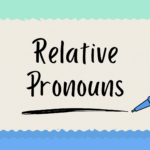Language is complex, and pronouns help simplify it. One interesting category is indefinite pronouns, which refer to non-specific people, things, or amounts. They’re versatile, working as subjects, objects, or possessive determiners. Let’s see the definition, usage, and examples of these pronouns to understand their role in language.
What are Indefinite Pronouns?
Indefinite pronouns don’t pinpoint specific individuals or things. Unlike personal pronouns, they’re more general and sometimes vague. They can function as subjects, objects, or possessive determiners.
Common Indefinite Pronouns:
Singular Indefinite Pronouns:
- Everybody
- Someone
- Nobody
- Anybody
- Each
- Either
- Neither
Plural Indefinite Pronouns:
- All
- Several
- Both
- Few
- Many
- Others
Singular or Plural Indefinite Pronouns:
- Some
- Any
- None
- All
Quantifying Indefinite Pronouns:
- Much
- Many
- More
- Less
- Few
- Little
How to Use of Indefinite Pronouns?
As Subjects:
Indefinite pronouns can replace specific subjects, making sentences less detailed.
Examples:
- Everybody is invited to the party.
- Someone is knocking at the door.
- None of the students has submitted the assignment.
As Objects:
These pronouns can serve as objects in various sentence roles.
Examples:
- She shared the cake with everyone.
- Have you seen anything unusual lately?
- We should help each other in times of need.
As Possessive Determiners:
Indefinite pronouns can show possession.
Examples:
- The book is hers.
- Is this umbrella anyone’s?
Examples in Sentences:
Let’s look at more examples to see how indefinite pronouns work.
| Sentence Type | Example |
|---|---|
| Subject of the Sentence | All of the cake was eaten by the children. |
| Direct Object | I saw something interesting at the market. |
| Indirect Object | She gave everyone a present. |
| Object of Preposition | We are going to the party with several friends. |
Tables for Better Understanding:
Here are Tables for Better Understanding:
Singular Indefinite Pronouns:
| Subject | Object | Possessive Determiner |
| Everybody | Everyone | Everyone’s |
| Someone | Someone | Someone’s |
| Nobody | Nobody | Nobody’s |
| Anybody | Anybody | Anybody’s |
| Each | Each | Each’s |
| Either | Either | Either’s |
| Neither | Neither | Neither’s |
Plural Indefinite Pronouns:
| Subject | Object | Possessive Determiner |
| All | All | All’s |
| Several | Several | Several’s |
| Both | Both | Both’s |
| Few | Few | Few’s |
| Many | Many | Many’s |
| Others | Others | Others’ |
Frequently Asked Questions (FAQs) about Indefinite Pronouns
1. What are indefinite pronouns, and how are they used in language?
Indefinite pronouns, like “everybody” and “some,” refer to nonspecific individuals or things. They function as subjects, objects, or possessive determiners, simplifying language by providing versatility. For instance, “Everybody is invited to the party,” showcases their role as subjects.
2. What are some common singular indefinite pronouns?
Common singular indefinite pronouns include everybody, someone, nobody, anybody, each, either, and neither.
3. Can indefinite pronouns be used as both subjects and objects in a sentence?
Yes, indefinite pronouns can function as subjects, objects, or possessive determiners, depending on their role in the sentence.
4. How are plural indefinite pronouns different from singular ones?
Plural indefinite pronouns refer to multiple individuals or things. Examples include all, several, both, few, many, and others.
5. Are there indefinite pronouns that can be either singular or plural?
Yes, some indefinite pronouns can be used as either singular or plural, depending on the context. Examples include some, any, none, and all.
6. How are indefinite pronouns used in sentences as subjects?
Indefinite pronouns can be used as subjects to replace the need for specific identification. For example, “Everybody is invited to the party.”
7. How do indefinite pronouns contribute to effective communication?
Indefinite pronouns add versatility and nuance to language, allowing for more efficient and expressive communication by providing a broader yet less specific reference.
Conclusion:
Indefinite pronouns make language flexible. They aren’t specific, working as subjects, objects, or possessive determiners. By understanding their definition and usage, we see how they enhance our communication, making it more versatile and nuanced. Embracing indefinite pronouns allows for more efficient and expressive language use.


